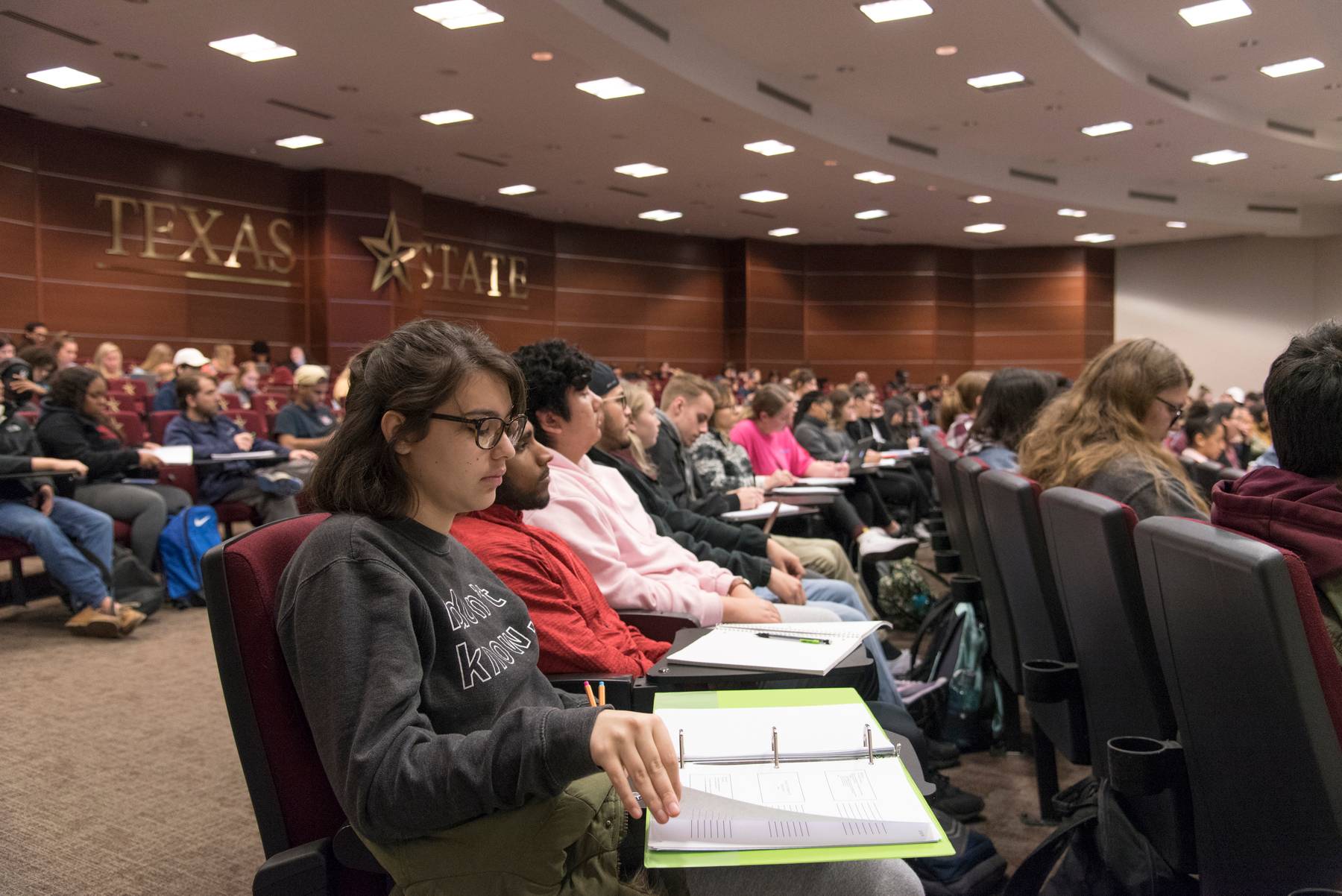Research Concentrations
Explore our concentration categories and faculty experts in those areas
Environmental Geography
Biogeography
Environmental Hazards and Disasters
Climatology
Water Resources, Hydrology, Water Policy
Sustainability
Community Resilience
GIScience
Spatial Analysis, Spatial Statistics
Spatial Humanities
Land Use/Land Cover Change
Human Geography
Migration
Mexico
Central America
Geographic Education
Spatial learning
Education policies
Powerful Geography: Teaching and Learning
Environment, Climate, Hazards, Physical Geography, Geology
R. Denise Blanchard, Ph.D., Colorado at Boulder, 1992, Professor — natural and environmental hazards, economic geography, environmental studies, research methods, historical geography
Rebecca Davio, Ph.D., University of Texas at Austin, 2001, Associate Professor of Practice and Internship Coordinator — applied research in data-driven decision making across a variety of topics, policy analysis, and recycling and sustainability
Richard W. Dixon, Ph.D., Texas A&M, 1996, Professor — climatology, meteorology, oceanography, hazards, quantitative methods, environmental
Ronald Hagelman, III, Ph.D., Texas State, 2001, Professor and Graduate Program Coordinator — environmental, hazards and disaster, historical, land management and conservation, urban environment/agriculture
Jason Julian, Ph.D., North Carolina, 2007, Professor — water resources, parks & protected places, land use change, ecosystem services
Samantha Krause, Ph.D., Geography, University of Texas at Austin, 2018, Assistant Professor — soil and water geochemistry, tropical wetlands, long term paleoenvironmental change
Yanan (Nancy) Li, Ph.D., The University of Tennessee, Knoxville, 2015, Assistant Professor — glacial geomorphology, paleoenvironment reconstruction, natural processes in climate change
Robert Mace, Ph.D., University of Texas at Austin, 1998, Professor of Practice — water policy and science, water resources and conservation, groundwater sustainability and modeling, climate change and water
Kimberly Meitzen, Ph.D., South Carolina, 2011, Associate Professor — fluvial processes, geomorphology, river basin management, biogeography
Benjamin Prince, Ph.D., Environmental Geography, Texas State University, 2016, Senior Lecturer — community and regional planning, environmental geography, agriculture-ecological systems
Thomas Ptak, Ph.D., Geography, University of Oregon, 2016, Assistant Professor — energy transitions & society, climate change & sustainability, water resources & hydropower, borders
John P. Tiefenbacher, Ph.D., Rutgers, 1992, Professor — global warming, climate change, spatial change, environmental problems, geography of wine, air quality, dissonance, circus clowns
Christi Townsend, Ph.D., Texas State, 2012, Senior Lecturer — environmental geography, geomorphology, natural hazards, the geography of agriculture and viticulture, research methods
GIScience
Edwin Chow, Ph.D., South Carolina, 2005, Professor — geocomputation, human dynamics, hazards, environmental modeling
Nathan Currit, Ph.D., Pennsylvania State, 2003, Associate Professor and Director, Texas Center for Geographic Information Science — uncertainty and change in human-environment systems, remote sensing and land-cover change
Alberto Giordano, Ph.D., Syracuse, 1999, Professor — historical GIS, holocaust and genocide geography, policy applications of GIScience, spatial applications of forensic anthropology
Su Han, Ph.D., San Diego State University and University of California, Santa Barbara, 2016, Assistant Professor — spatial data science, social media analytics, health GIS, web-based GIS, GIS-based decision support system, cybergis, cartography, geovisaulization, geovisual analytics, and neighborhood dynamics
Jennifer Jensen, Ph.D., Idaho, 2009, Professor and Associate Chair — remote sensing; vegetation mapping and monitoring; habitat modeling; landscape ecology; natural resource management; land cover land use change; lidar
Yongmei Lu, Ph.D., SUNY at Buffalo, 2001, Professor and Chair — GIScience, urban and regional analysis, health and medical geography, crime geography
Yihong Yuan, Ph.D., California at Santa Barbara, 2013, Assistant Professor — GIScience, spatio-temporal data mining, GIScience programming
F. Benjamin Zhan, Ph.D., SUNY at Buffalo, 1994, Professor — GIScience, health and the environment, transportation and network science
Human Geography
Sarah Blue, Ph.D. UCLA, 2004, Associate Professor — political geography, urban studies, economic geography, migration
Brian Cooper, Ph.D., Texas State, 2012, Senior Lecturer and Undergraduate Program Coordinator — world regional geography, sub-saharan Africa
Jennifer Devine, Ph.D., California at Berkeley, 2013, Associate Professor — human-environmental relations, latin american - US politics, critical social theory
Colleen C. Myles, Ph.D., California at Davis, 2012, Associate Professor — human-environment interactions, cultural and political ecology, qualitative methods
Rosalie Ray, Ph.D., Urban Planning, Columbia University, 2020, Assistant Professor — sustainable transportation, transit governance, multi-scalar planning, and just transitions
Eric Sarmiento, Ph.D., Rutgers. 2015, Associate Professor — urban development, cultural geography, political ecology, economic geography, social theory, critical geographies of race and ethnicity
Geographic Education
Richard G. Boehm, Ph.D., Texas at Austin, 1975, Professor and Jesse H. Jones Distinguished Chair of Geographic Education
Injeong Jo, Ph.D., Texas A&M, 2011, Associate Professor & Learning Outcomes Coordinator — geography and spatial thinking education, geography and social studies teacher preparation, geospatial technologies for education, assessment in geography
Osvaldo Muniz, Ph.D., Tennessee, 1991, Professor — population flows, geographical mobility, regional networks, learning strategies in geography education
Michael Solem, Ph.D., Colorado at Boulder, 1999, Professor and Co-Director, National Center for Research in Geography Education — K-12 curriculum, instruction, and assessment, spatial thinking and learning, powerful geography, geospatial technology, higher education, broadening participation, and workforce development
